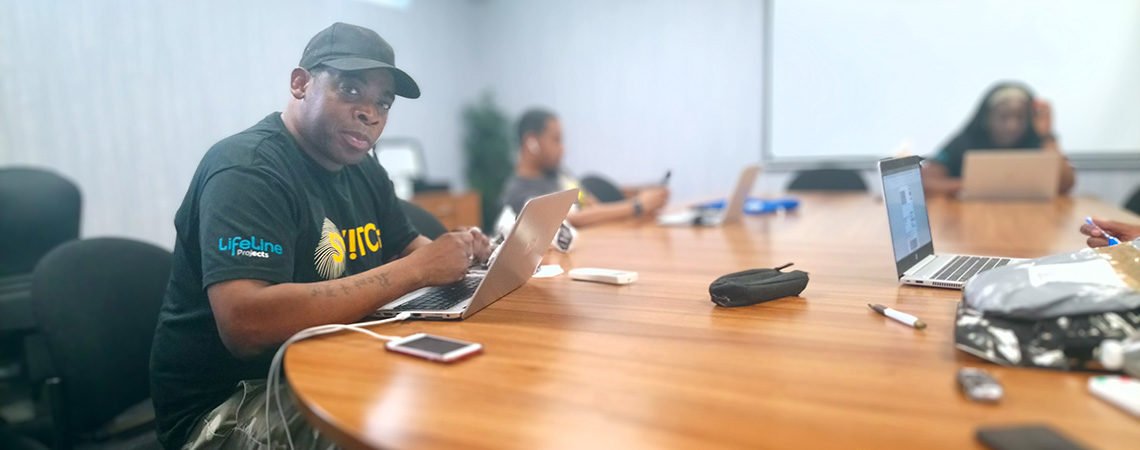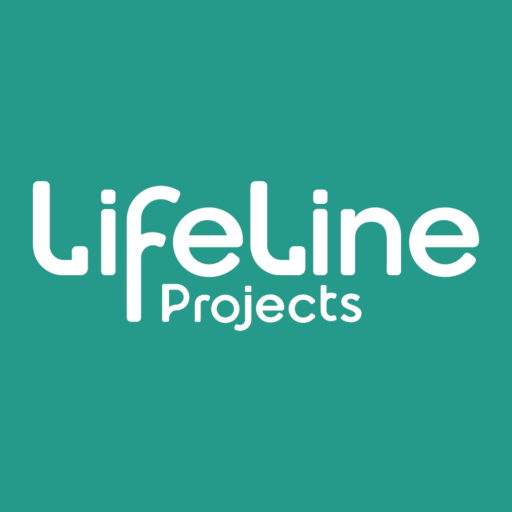This month, we’d like to introduce Royston, an incredibly dedicated Youth Development Worker within our SW!TCH team and one of our Parent Champion Co-ordinators. Royston has a wealth of experience and melds his two disciplines with infinite precision.
We hope you enjoy getting to know more about Royston’s journey and time at LifeLine.


I was born in Stratford and raised in Manor Park. For me, Manor Park was very normal, well-located, just a useful place to grow up. It was me and my five siblings living in a single parent household.
My mother is a very brave and optimistic person. She grew up in Jamaica and came to the UK on her own as a very young woman. She was from the generation where they just jumped into the unknown—the generation was about making the best out of any situation. These days you can’t parent the way her generation used to, but the positive go-getting attitude she had has rubbed off on me.
When I try to help people, I like to think that I plant seeds and ideas. I want to see them become more aware of themselves and their situation, but they do all the work and grow. I just plant the seed.
In bad and stressful situations, it’s very easy to think, “Why me?”. I have all the empathy in the world, but instead I usually say, “Why not?”.
I’m the father of four great kids myself. Sadly, their mother passed when they were all still quite young and, thank God, I’m here to play a part in their lives. I couldn’t even start to imagine what it must be like for them as both my parents are still alive. I say to them that, “I’ll never know what it feels like, but I have got the time and will make time to hear from your own lips what it feels like to lose a parent.”
When kids are younger, it’s easy to nurture them and look out for them. As they turn into young people—when they can cook for themselves and are safe to go out on their own—that’s when things change. They require friendly conversations and you have to spend more quality time, even if it’s just hanging out and chatting. It’s a pity that my kids missed out on having that adult relationship with their mother.
Fatherhood has changed so much since I was a child. It used to be about providing for your family, buying all the latest things your children asked for. Now it’s more about spending that time together. If you don’t take the time to do stuff with your children, your relationship with them won’t work out.
Parenting is one of the toughest jobs in the world. There are so many angles to it and it comes with no manual. Most parents struggle to accept there is a different way of doing things. Parenting is such a personal thing—it’s wrong to deny others their opinions and you should be open to change. And if you decide you can’t take advice from someone because they’re not a parent, you’re putting up a needless wall.
I recently had a session with a young person who thought she had two characters—who she was at home and who she was at school. She said she felt a lot more free at school. A lot of young people don’t feel heard, they feel they’re invisible. They feel their opinions don’t matter. Adults need to listen twice as much as they talk—that’s why you have two ears but only one mouth. But if you’re a parent or a teacher, that can be very difficult at times. I’m thankful that my profession thrives on it though.
Why is there a lack of men in parent support groups?


Have you always worked for charities?


Yeah, I’ve always worked in the charity sector. Even my first job was a youth worker—I really hit the ground running. I guess I was surprised to see I had a natural ability for it. I was great at talking to all types of people, I was open about sharing my life experiences, and I was really honest with them.
The one thing I know with young people is you must follow through. A promise is a promise—don’t let them down.
How important is the father to a family?


Let me tell you something—there was this young person I was mentoring recently, about 13 years old. She was taking part in the positive activities that we provide for local schools when I asked her what she was doing for Father’s Day. I already knew that her dad wasn’t living with her family and I suspected that she was missing him. So, I just asked straight out if she did. Sometimes people won’t share with you unless you ask the right questions. And I think the right question is an open question that helps open up a bigger conversation.
I asked her how would she feel if I went and found her dad. And she told me it would make her happy. So she gave me his name and, just two hours later, I found him. It turned out that she heard a lot of different things about him from her family, but she wanted to ask him about them, hear it from the his side. She was becoming a young adult where she knew things are not so black and white. She ended up speaking to him via text and she apologised for cutting him off. They met up on Father’s Day and she was so happy to see him. It created an opportunity to heal the past.
What keeps you up at night?


I’m not a worrier, I’m a warrior.
What gets you out of bed in the morning?


I wake up blessed every morning, I’m grateful for life.
What’s the one thing no one knows about you?


If I told you that, then everyone would know. So I’m going to keep that a mystery.
What are the three things you’re grateful for today?


Waking up, having a roof over my head, and my family.



